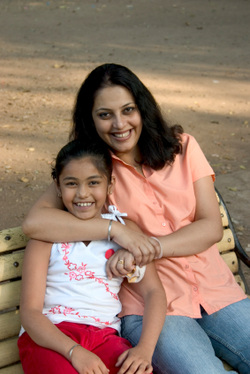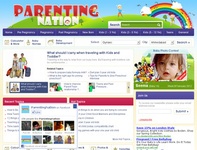 Today the world is very different than the one which is known to our ancestors. There was time when men work and women look into the household jobs. But today as the market and industrial sector are growing, on the same pace its side effects, inflation and rising prices, are also growing. So to sustain the living one should be not just earning but earning more for a better living. This scenario created a situation where not just men work to feed the raising requirements and prices but also woman gives a helping hand to the men in the house. Hence it has become so much important to learn and earn in life and to become independent in today world. If one have to live a better living. It is like chain reaction, the more inflation in prices, the more it creates a necessity to earn a livelihood by doing some kind of job so that the future should be secured. But our world is not as easy as it seems to be. There are lots of challenges faced by working women as compared to working men. Today, though the discrimination between man and woman has become trivial, but actually when it comes to the roles of working women, it gets difficult and challenging to debate on the same. Different people have different perceptions about what should be the priorities in the life of a working woman. Woman at work face various problems along with the good salary they are being paid. To earn is today’s need hence the dilemmas of working women can’t be underestimated. There are lots of factors taken into consideration when a woman chooses to work. The women who choose to work, in spite all the conditions and factors which forces her back, are laudable. They are paragon to our society. Advantages of working women: - Working women are self dependent and can earn her and her children living without any dependency. They add to the income of the family and thus the life becomes easier. The bill’s also get paid easier.
- They can help there better halves’ in supporting family finances and lessen the burden from the only people earning in the family.
- They are the inspirations for the women, who cannot work because of society’s constraints. The orthodox people who think women should not work and just are subjected to the house work can convince them by providing knowledge about the pros of working women.
- Working women becomes more responsible since they perfectly balance personal and professional lives and also they are respected in the society.
- Working women’s personality enhances and they become confident when supporting the family and simultaneously helping children in home work, preparing food etc.
- The creativity, professionalism and personality development in the woman can be improved and she comes out to be one is many.
Disadvantages of Working Women: - Sometimes working women didn’t get time to spend with family members. A child need’s to have at most company of the mother, which a working woman can’t give and at times becomes difficult.
- Pressure of work and meeting deadlines can cause downfall in her health. Also there can be cases when she has to put some family commitment on hold due to work load and this can set a wave of anger and tiresome which sours her as well as family members mood.
For More Information : Working Women
It seems that your little bundle of joy that slept in your arms the other day has grown so fast, that it is time to start looking for a preschool. Parents have several apprehensions regarding the right age for play school and the preschool that they should opt for. Though play schools start accepting children at a very tender age, it is entirely up to the parents when they deem their child has reached the optimum age for play school. In the following section, we will cover some important facets of development that will help decide whether your child has reached the right age for nursery admission in India, as there is no hard and fast rule to abide by when it comes to determining the correct age for play school for your little one. Questions one should discuss to determine the right age for preschool for their child:In today’s age, parents do not have time with their tight working schedules and managing homes at the same time, so they think that admitting their child to a good preschool at the earliest is the best way out to ensure their child’s complete development. Sadly, this is not true. Most of the schools start accepting students when they are about 2.5 years of age, but a number of factors come into account when it comes to determining the right age for schooling in India, and simply thinking that the child has all the skills required to manage school activities at such an age is not the right approach.
Is the child independent: most preschools require that the child is able to take care of himself to a certain extent, like being potty trained, sleeping on his own, and washing his hands before and after a meal. If not, the child needs to be trained before joining a preschool and thus that time, will not be the best age for playschool for such a child.
Separation issues: if the child has not spent any time away from his parents, it is going to be a tough call determining what the correct age for preschool is for such a child. The child is going to have a tough time in adjusting himself to an all new surrounding without any familiar faces if it is first time in such a scenario. Development of child’s imagination: a vital factor in deciding what is the right age for nursery admission is to assess whether your child has the basic knowledge of the world around him and is interested in doing craft and art work on his own. If the child is interested in exploring new items and solving puzzles, he is suitable for admission. If not, the parents can prepare their child for preschool by giving some time each day to the child. Read More...
 One must aim at creating an atmosphere similar to preschool at home. The child’s room must be full of engaging art and craft items and story books to enthuse his creativity. When the parents are doing their work, they can keep the child occupied by giving the child small and interesting tasks like modeling toys out of play dough or drawing their favorite things. Buy educational toys for the child and take time out to communicate with the child and also explain the purpose of preschool. Right age for playschool India for a child will depend on his readiness to induclge in curricular activities. The child must not think of preschool as a burden. This is a crucial factor in deciding the right age for preschool in India. If the parents want to get their child enrolled, it is important that the child must be taught to think positively and think of school as fun. Take him to parks or social gatherings frequently where he/she will learn to interact with other children of his age and will be more comfortable in a classroom in future. If the child is shy and does not talk to others, it is important that he starts interacting. To this end, encourage the child to take part in discussions and greet relatives. When you have visitors at your place, teach the child to introduce himself and make conversation with people, which will open him up gradually and build confidence. If one is wondering what is the right age for preschool, first ensure your child is potty trained and can take care of him. Also, the child must be healthy and any health related concerns must be communicated to the preschool authorities to take special care of your child. Read More...
 A 6 month old baby should be provided with a diet that is rich in a variety of nutrients like vitamins and minerals, derived mainly from liquids but a little from solids too. A diet plan for 6 months old baby ensures he gets a balanced diet to support proper development. At this age, the baby is prone to infections as well as diseases like anemia and malnutrition; hence diet chart for 6 month old baby India is the best way out to provide all essential nutrients to keep the immunity system strong. However, one must know that each baby is different in when he/she starts to accept solid foods and hence diet chart for 6 month old Indian baby will vary. Your six month old must begin to accept a fixed schedule for having food, as dictated by the baby diet chart at 6 months. However, the schedule must not be very strict. The prime components of diet plan for a six month old baby have been discussed in the forthcoming section. Always remember to introduce new foods in the baby’s diet slowly, rather than all at once. Some babies eat a few spoons of solid foods while some will accept a greater quantity. It will entirely depend on the baby, not on the diet chart for 6 months baby. According to the 6 month baby diet chart India, the babies this age must have 3 to 4 ounces of food every day. Parents must learn to understand the baby cues to know if she is full or can have more feed, like when she opens her mouth or leans in when the spoon is brought close to her mouth. If the child turns her head away or keeps her mouth shut, do not force her to have more bites. Read More...
 1.) The diet plan for 6 month old baby must include both solid and liquid foods.
2.) Parents must ensure that they never feed the child forcefully as overeating often leads to tummy pain and gas problems in infants, indicated by hours of wailing.
3.) Start giving the child egg yolk twice or more each week. At this point, the diet chart for 6 month Indian baby does not include boiled egg as the child may be allergic to it.
4.) Breast milk is still the most important source of nutrition for your infant. Diet chart for 6 months old baby suggests that one does not immediately switch to whole milk but continue on breast milk and make this transition gradually.
5.) Another source of balanced nutrition is baby cereal, which must be served to the child or breakfast as well as dinner. Doctors recommend that the diet chart for kids of six months must include mashed fruits like mashed banana, boiled and mashed apples as well. Encourage the child to have citrus fruit juices after confirming that the child is not allergic to any of them. Fruit juices are an important source of liquid nutrition for the infants.
6.) Green vegetables can also be boiled and mashed to feed your 6 month old. Mashed green peas, beans and khichri are good options according to sample 6 months baby diet chart.
7.) Boiled rice and dal water are nutritious and are easily digested, hence are ideal for infants. 6 month baby diet chart includes these options as well. 8.) Diet chart for 6 months old baby India must make sure that the parents learn to not to give their baby big chunks of solid food as the baby might choke on them. The food must be broken into small bits and hard and crunchy foods are a strict no-no for an infant this age. Read More...
 A one year old baby is growing at a great speed and requires a balanced diet containing all the nutrients. Although the main food for a baby is mother’s milk, yet now is the age when the food for 1 year baby must be modified to increase the calorie content and include numerous food items that are highly nutritious. To ensure that your kid grows healthy and remains fit, the diet chart for 1 year old baby must be balanced and contain a healthy mix of proteins, vitamins, minerals and carbohydrates. To make sure that the child’s diet is suited for his age, the parents can consult a doctor to create a diet plan for 1 year baby. Food chart for 1 year old baby India: India is a land of varied culture and cuisines. Owing to the multitude of food items eaten in different parts of the country, the range of items that can comprise a healthy diet for 1 year old baby are numerous. However, one must keep certain things in mind while designing a diet chart for 1 year old: - Do not make a sudden change from mother’s milk to solid foods. Take a step at a time and introduce new food for 1 year old Indian baby gradually.
- The baby’s mouth and wind pipe are all delicate at this tender age. Hence diet plan for one year old baby should not include items like popcorn or walnuts on which the child may choke.
- If you introduce the child to healthy foods right from the beginning, he will develop a taste for such nutritious items which will prove beneficial in the long run. Hence, give the child fresh fruits and seasonal vegetables instead of junk food and aerated drinks, chocolates and candies. Read More...
1.) Instead of mother’s milk, the diet plan for 1 year old baby must include whole milk which is rich in calcium and healthy fats. 2.) The baby’s stomach gets full easily, so food for 1 year old baby India should be broken down into 5 to 6 small meals fed a few hours apart. 3.) To keep the baby interested and ensure he does not become a picky eater, do experiment with food items and create something colorful and appealing every day. An example diet chart for 1 year old baby boy is demonstrated below: - Start the day with a cup of whole milk, providing wholesome nutrition to the child.
- For breakfast, mothers may consider serving the 1 year old with half a cup of Dalia, upma or poha. Otherwise, a small idli, half stuffed vegetable or paneer paratha are good options.
- Brunch culture has gradually developed in every part of the world. For such mid- morning meals, the child can have a bowl of fruit chaat, a cup of juice or mix vegetable soup which is nourishing and delicious.
- Lunch must be a wholesome meal providing all the essential nutrients. According to 1 year baby diet chart, the lunch must include half a cup of cooked pulses with rice or a small chapatti, half cup of biryani or pulao or some seasonal vegetables or a paneer based dish with chapatti or paratha.
- In the evening, provide the child with a healthy glass of milk shake, fruit juice, fruit custard or a bowl of mixed seasonal fruits.
- Dinner must be light for the baby’s tummy. Khichri, dosa, vegetable pizza and soybean parathas are some healthy and nutritious options.
The diet chart for 1 year old baby girl can also be designed in a similar manner. One can include many different food options but food chart for 1 year old baby India must be balanced and nourishing to ensure baby’s healthy development. Read More...
The society has drastically changed from what it was several decades back, and so has the outlook of people towards women. The time when a married woman devoted all her time for taking care of the family has long gone by, and women now manage the home front as well as work. The trend of working mothers has emerged quite rapidly, and is here to stay. The modern woman is considered fully capable of giving her child the right upbringing while supporting her family financially as well, being the biggest advantage of a working mother. People these days have different opinions about working mothers, while some believe that working mothers are better mothers, others believe that working mothers cannot take good care of their family. Here we are going to shed light on advantages and disadvantages of being a working mother: Working mothers: Advantages and DisadvantagesA working woman is independent and is capable of supporting herself as well as her child on her own. In event of any unfortunate circumstances, a working woman is much better adept at taking care of her child than a housewife. This is the prime reason why some people claim that working mother are better mothers. Another one of advantages of a working mother is they know how to harness their education and skills, and hence they can provide better education to their children. This is also possible because of more financial resources at the hands of a working couple, that they know what is best for their child and can enroll the child in numerous activities and classes that they find best for the development of their child. People often wonder as to how a working mother manages the care of her children. This is because such mothers have a tight working schedule and learn to manage everything within the limited time frame. Read More...
 Advantages of working mother: - They have to manage all the household chores on time and are often assisted by their spouses in the same, which also makes the children see and learn qualities like time management, discipline and tidiness. In comparison to a housewife’s children, these children have to be more alert, independent, confident and co-operative which will help them in their future lives.
- Working mothers tend to have a stronger bond with their children. They spend fewer hours with their kids and hence shower all their love and affection upon them, as opposed to non-working mothers who can sometimes take the children for granted, having them before their eyes all day long. This is another one of advantages working mother.
- There are numerous advantages and disadvantages of working mothers. As the mothers have a more intense interaction with the child, the child also reciprocates with a greater affection. However, there is a flip side to every situation, as we will see now.
Disadvantages of working mother: - Added to the list of working mothers advantages and disadvantages is the guilt of not being able to give your child the time he/she deserves. Many mothers have to leave their babies in child care centers which leave them feeling irritated and anxious about their well being.
- The child may feel alone and fall in bad company in search for friendship and affection, being alone in their house for most of the time. The parents do not have time to attend the important school meetings, functions, outings or talk to the child about his problems, which may develop guilt, inferiority or he may end up having depression in worst cases. Such cases are what greatly bring down the advantages in working mom advantages and disadvantages race.
- The stress of juggling job and home front is too much in some cases. The dual responsibility requires thorough planning and round the clock work which is a huge minus in the list of advantages and disadvantages of working mother. Read More...
 Your little bundle of joy has grown out his baby clothes so fast! The toddler is now more than 2 years old and keeps you on your toes all day long. Not only do you keep worrying about his diet and health now is the time to also choose the right preschool. When the child is about 2 to 2.5 years old, parents start searching for a reputed preschool. The admission procedure may vary slightly from institution to institution, but school interview for parents happens in each preschool. Along with the child, the parents are interviewed in school to know about their background and how they take care of the child. Many parents get cold feet before the interview so it is important to be prepared with frequently asked school interview questions and answers for parents. School interview questions for parents are not many and serve only the purpose of ascertaining the bond between the child and parents and how have they prepared the child or school. Parents interview questions and answers for admission in school have been discussed here to help the nervous parents of a toddler. School admission interview questions and answers for parents have been focused upon: Know the preschool : whenever the parents apply at a preschool, it is expected that they have a fair share of knowledge about the school’s philosophy, vision, principles and a little bit about the history of the school as well. The interviewer must be confident that the views of the parents align with those of the school to ensure proper development of the child at home as well as in the institution. Thus questions asked to parents in school interview will be aimed at ascertain whether the parents know about the preschool’s curriculum and requirements. Basic details : though the application forms requires all the details about the parents and the child to be entered in detail, parents interview questions will also focus on basic details of parents educational, work and home background including degrees, qualifications, jobs and income of parents. Questions about the child : a great portion of the interview will be dedicated to your child. Nursery interview questions for parents include asking about the child’s nap time and food habits. It is required to know whether the child is a fussy eater, is allergic to certain foods, and when does he sleep so that he/she may adjust with the preschool schedule. Answers to such parent interview questions are known by the parents and hence there is no need to worry. Medical details : parents interview questions and answers will include discussions about the child’s health and if he has any such medical condition that will require special care. Also, parents interview questions will include the immunization records and if the child is allergic to a specific item. Behavioral problems like bed wetting, thumb sucking are also inquired for and parents must be truthful. Parents’ jobs : details about the jobs like office location, distance from the preschool and if one or both the jobs are transferable are asked in interview of parents for admission in nursery to decide what the best curriculum is for the child. If the jobs are demanding and offices are located far off, some other preschool may be suggested. Questions about the child’s knowledge : Parent’s interview questions for school admission will include ascertaining how much the child knows, like the basic colors, shapes, animals, fruits and objects around him. The interviewer will be interested in knowing the means used by the parents to educate the child, like educational books and toys. Interview questions for parents for nursery admission are not meant to scare the parents away. Teaching your child about the preliminary things like numbers, colors and alphabets will show that your child is confident and improve chances of being selected. Talk about the positive aspects of school and why you want to enroll your child in the institution to leave a lasting impact upon the interviewer. For More information : parents to give preschool interview
|








 RSS Feed
RSS Feed